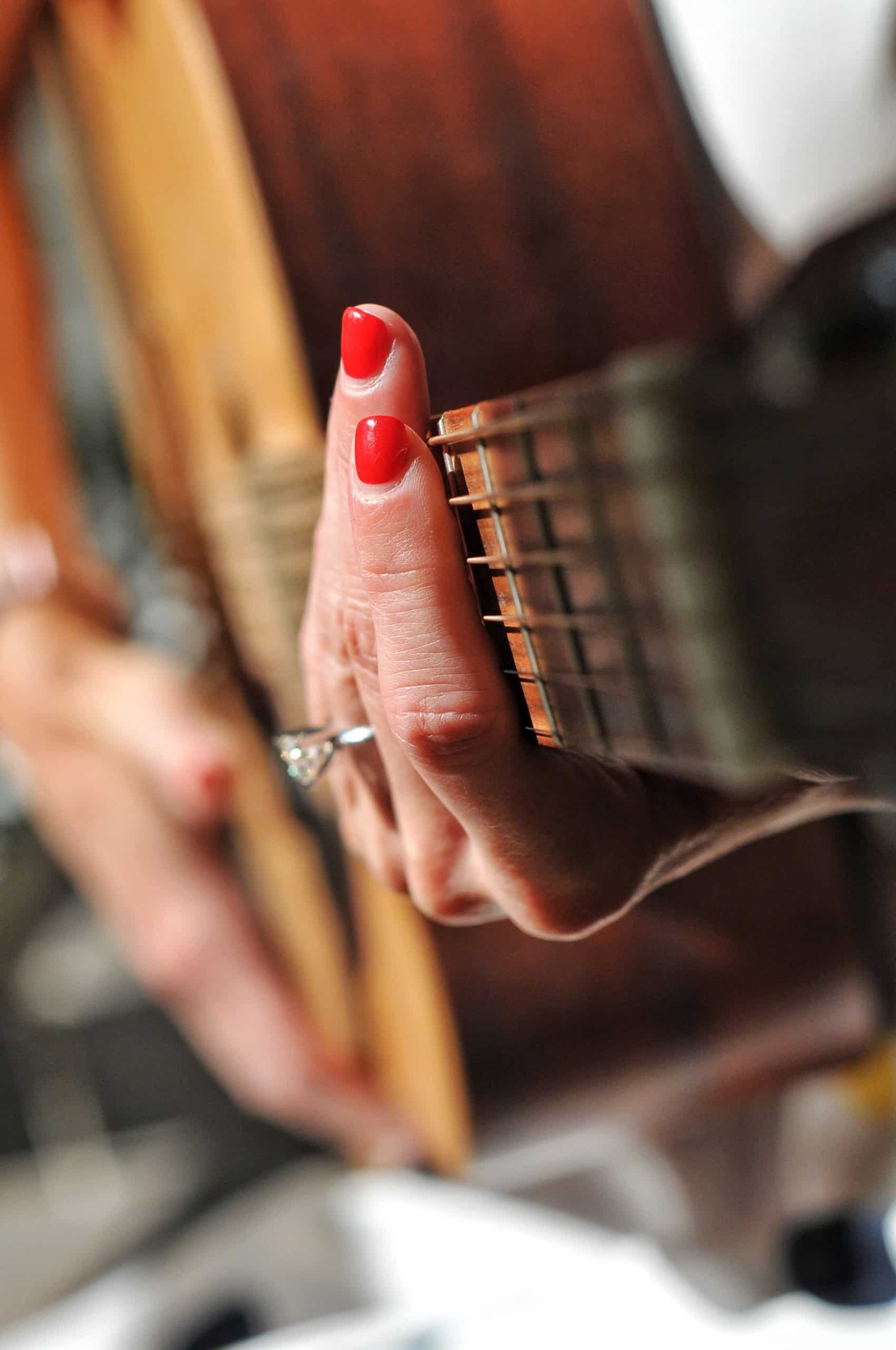In the realm of music and developmental science, a perennial question continues to intrigue researchers and parents alike: Does exposure to classical music influence the health and development of babies? As a parent, you may have heard the anecdotal tales of how music, particularly classical, can boost your baby’s brain development.
The "Mozart Effect" has raised scholarly interest and provoked a series of studies to examine the potential benefits of exposing infants to classical music. This article delves into existing research, with sources such as Google Scholar, PubMed, and PMC, to provide an informative look into the subject matter.
A lire également : Can Mindful Breathing Techniques Alleviate Panic Attacks?
The Mozart Effect and Babies’ Brain Development
The so-called "Mozart Effect" is a term coined in the 1990s following research that suggested listening to Mozart could improve spatial-temporal reasoning in children. While the original study did not involve babies, subsequent researchers and commercial interests extrapolated these findings to the realm of early childhood development.
In 2006, a study published on PubMed examined the Mozart Effect in newborns. Researchers exposed newborns to Mozart’s music, silence, or white noise and found that the babies who listened to Mozart had significant reductions in resting energy expenditure. This suggests that the calming nature of classical music might contribute to more efficient energy use, potentially aiding growth and weight gain in preterm infants.
A voir aussi : Can Introducing Allergens During Infancy Reduce the Risk of Allergies?
Another study published on PMC in 2013 exposed unborn babies in the womb to classical music. The researchers found that babies who had been exposed to music exhibited heightened attention and more mature cognitive abilities compared to those who hadn’t been exposed.
The Impact of Music on Babies’ Learning and Cognitive Skills
Not merely an instrument for relaxation, music plays a crucial role in cognitive development for babies. Classical music, with its complex structures and patterns, can stimulate a baby’s brain, encouraging the development of advanced learning and reasoning skills.
Research has shown that babies as young as six months can discern melodies and rhythms, and these early musical experiences can shape their future cognitive and linguistic abilities. A study featured on PubMed in 2017 exposed babies aged 9 to 12 months to classical music sessions over a month. The results were compelling, with babies demonstrating improved cognitive skills, such as better memory and attention span, compared to a control group that did not receive the music sessions.
However, it’s important to note that the type of exposure matters. Passive listening may not be as effective as active participation in music-making. A study published in Google Scholar suggests that interactive music classes enhance babies’ musical skills and social development more than passive listening.
The Role of Music in Fetal Development
The influence of music on babies begins as early as the fetal stage. While in the womb, babies start to develop their hearing at approximately 20 weeks and respond to sounds in their environment, including their mother’s voice and other noises.
There’s evidence suggesting that the fetuses can perceive rhythm and melody. Notably, research on PubMed in 2019 revealed that fetuses who were exposed to music in the womb showed a significant increase in movements and heart rate. These responses indicate that music could stimulate the fetal brain, fostering neural connections and early cognitive development.
Nevertheless, it’s essential to consider the nature of the exposure. Overexposure or exposure to very loud music can potentially stress the fetus. Therefore, moderation and consideration of the volume are vital when exposing a fetus to music.
The Effects of Music on Infants’ Emotional and Social Development
Beyond cognitive development, music plays a pivotal role in fostering emotional and social growth in babies. Classical music, with its expressive melodies and harmonies, can elicit emotional responses and promote empathy in babies from an early age.
Research from Google Scholar suggests that babies can perceive emotion in music and respond accordingly. In one study, babies listened to happy or sad classical music, and their emotional reactions were observed. The findings showed that infants could match their emotional responses to the emotional quality of the music.
In terms of social development, interactive music activities can foster bonding between babies and their caregivers, promoting secure attachment and social skills. A scholarly paper in PMC revealed that participating in group music classes can boost babies’ social skills, including cooperation and awareness of others’ emotions.
Can Classical Music Be A Magic Bullet?
While the exploration of the effects of classical music on babies’ health and development has yielded promising results, it’s crucial to approach the topic with a balanced perspective. While classical music can certainly be beneficial, it should not be viewed as a magic bullet for enhancing babies’ brain development.
Studies have shown that a variety of factors contribute to babies’ cognitive, emotional, and social development. These include genetics, the quality of care and interaction they receive, their nutrition, and their overall environment. Therefore, while incorporating music into your baby’s life can be beneficial, it’s equally important to provide a nurturing, stimulating environment that supports their overall development.
As with many aspects of raising children, moderation is key. Overexposure to classical music could potentially lead to sensory overload and stress for the baby. Therefore, it’s advisable to introduce classical music to babies in a balanced, thoughtful manner, considering their individual needs and responses.
Finally, remember that the joy of music is universal and timeless. Whether or not it boosts brain function, sharing the joy of music with your baby can be a beautiful, enriching experience for you both. So, go ahead and play some Mozart, but don’t forget to sing, dance, and make music together too.
Classical Music and Physical Health of Neonates
Classical music not only impacts the cognitive development of babies, but it may also have a profound impact on their physical health. Several studies have explored the potential benefits of music therapy on neonates, particularly preterm infants, in the Neonatal Intensive Care Unit (NICU).
A PubMed free article published in 2013 detailed a study conducted on the influence of music exposure on preterm infants’ physiological parameters and feeding behaviors. The study found that infants exposed to classical music in the NICU had a lower heart rate, higher oxygen saturation levels, and better sucking behaviors than those in the control group. This implies that classical music may have a soothing effect on preterm infants, contributing to their physiological stability and feeding skills, which are crucial for growth and survival.
Another study, which you can find articles about on Google Scholar, investigated the effects of music on the auditory cortex of newborns, particularly those exposed to classical music. The research suggested that classical music might contribute to the enhancement of the auditory cortex’s long-term development in neonates.
Furthermore, a PubMed Google search will reveal a 2020 study that explored the effects of music therapy on the health outcomes of critically ill neonates. The findings suggest that listening to classical music can reduce stress responses, improve sleep quality, and facilitate better weight gain in these newborns.
However, like all interventions, the use of music therapy should adhere to the principle of doing no harm. Therefore, the volume, duration, and type of music, as well as the infant’s individual needs and responses, should be meticulously considered when implementing music therapy in the NICU setting.
The Conclusive Melody: Balancing Music and Other Elements of Babies’ Development
In conclusion, the body of research indicates that exposure to classical music can indeed influence the brain development and physiological health of newborns. From enhancing cognitive abilities and promoting emotional and social growth to improving physical health parameters, classical music seems to strike the right chord in advancing neonatal health and development.
However, it is essential to not overstate these findings and view classical music as a panacea. While the Mozart Effect and other related phenomena present fascinating insights, they do not negate the complex interplay of other crucial factors that contribute to a child’s development. Elements such as genetics, quality of care, interaction, nutrition, and the overall environment also play significant roles.
Hence, while incorporating classical music into a baby’s life can potentially enhance their development, it should be done thoughtfully and in balance with other developmental stimulants. Overexposure to classical music could lead to sensory overload, causing unnecessary stress for the baby. As the research suggests, moderation, careful selection, and thoughtful introduction of music are key to maximizing its potential benefits.
Lastly, it is worth keeping in mind that the most beautiful aspect of music lies in its ability to bring joy, soothe, and express emotions. Sharing these musical experiences with your child can foster a stronger bond while creating an enriching environment for them. So, play some Mozart, sing a lullaby, or maybe even dance a little; after all, the language of music is a beautiful gift to share with your child.






